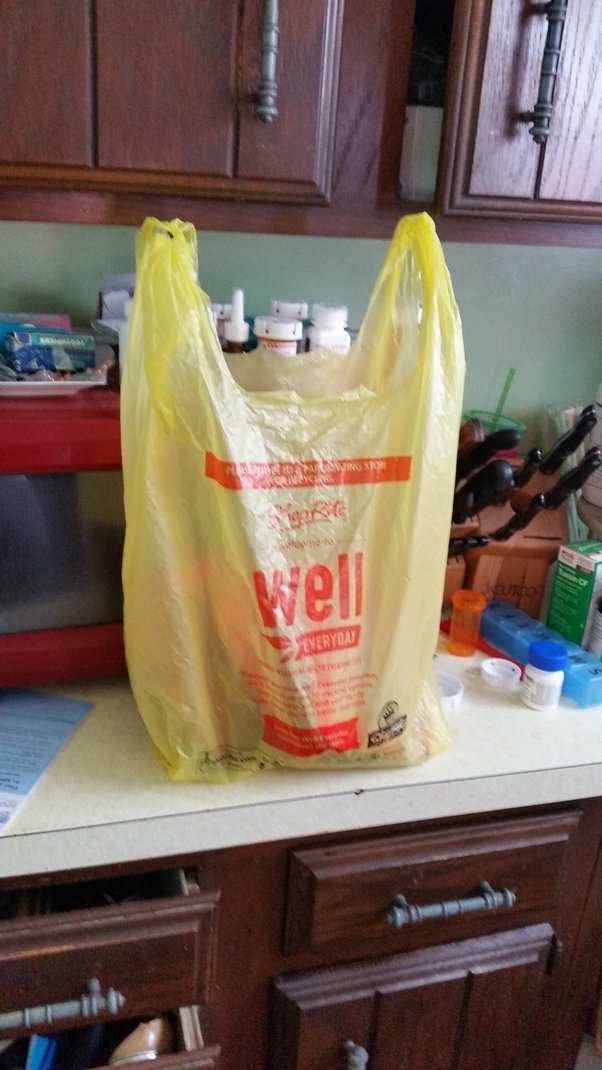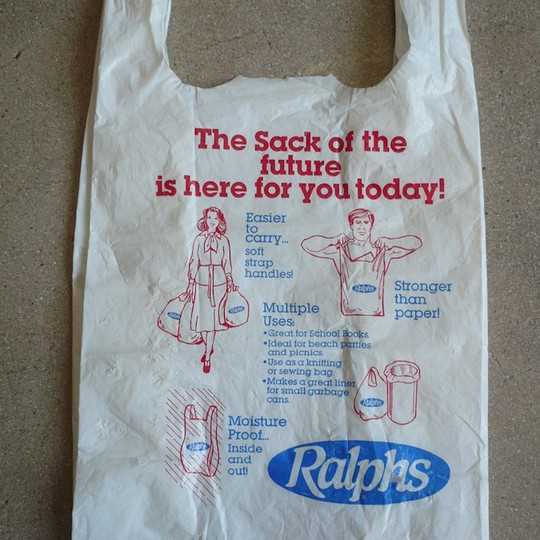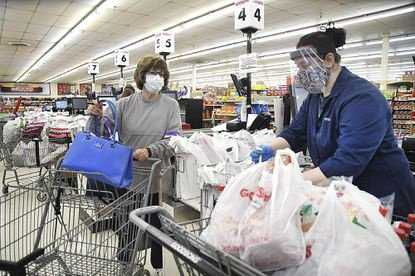
Plastic bags are a common item used by people all over the world to carry groceries and other items. However, different countries have different names for these bags. In the United States, these bags are most commonly referred to as “plastic bags”.
While the term “plastic bags” is widely used in the United States, it is important to note that there are variations in regional dialects. For example, some Americans may refer to these bags as “grocery bags” or “shopping bags”.
It is interesting to note that the term “plastic bags” is relatively new, as plastic bags were not commonly used until the mid-20th century.
Plastic bags have become a significant environmental concern due to their impact on the planet. Many cities and states in the United States have implemented plastic bag bans or fees to discourage their use in an effort to reduce waste and protect the environment.
- American Terms for Plastic Bags
- Common Names for Plastic Bags
- Regional Variations in Calling Plastic Bags
- Slang Terms for Plastic Bags
- Environmental Impact of Plastic Bags
- 1. Pollution
- 2. Non-biodegradable
- 3. Resource Consumption
- 4. Wildlife Threat
- 5. Plastic Bag Bans
- Conclusion
- Efforts to Reduce Plastic Bag Usage
- 1. Bag Fees and Taxes
- 2. Bag Bans
- FAQ
- What is the commonly used term for plastic bags in the United States?
- Are plastic bags called something else in America?
- Do Americans have a specific name for the bags used at grocery stores?
- Do Americans use a different term for plastic bags than other countries?
- Are there any slang terms Americans use for plastic bags?
- What is the common term used in the United States to refer to plastic bags?
- Are there any other names for plastic bags in America?
American Terms for Plastic Bags
Plastic bags, which are typically used for carrying groceries or other items, have various names in American English. The most common term for a plastic bag in the United States is “plastic bag” or “grocery bag”. However, depending on the region or specific context, there are other terms that may be used.
In some areas, plastic bags are referred to as “T-shirt bags” due to their shape, which resembles a T-shirt when opened. This term is commonly used in locations such as Texas and other parts of the South.
Another term used in certain regions, particularly in the Northeast, is “carrying bag”. This term is more specific and emphasizes the bag’s function as a means of carrying items.
In addition to these terms, some Americans use the word “sack” to refer to a plastic bag. This term is more commonly used in the southern states or rural areas.
It is important to note that while these terms may be used in different regions, the most widely understood and commonly used term throughout the country is simply “plastic bag”.
Common Names for Plastic Bags
Plastic bags are a ubiquitous part of daily life in America and are referred to by various names. Here are some of the most common names used:
| Plastic Bags | The most straightforward and generic term for these bags is simply “plastic bags.” This name is widely understood and used throughout the country. |
| Grocery Bags | These bags are often called “grocery bags” because they are commonly used in grocery stores to carry purchased items. People often refer to them by this name even when using them for other purposes. |
| Tote Bags | While the term “tote bag” typically refers to a large reusable bag, many people also use it to refer to smaller plastic bags that are used for carrying various items. |
| Checkout Bags | In some regions, these bags are specifically referred to as “checkout bags” because they are often provided at the checkout counter of stores. |
| Carryout Bags | Another common name for these bags is “carryout bags.” This term emphasizes their purpose of carrying items from a store to a customer’s vehicle. |
| Single-Use Bags | As the environmental impact of plastic bags has become a concern, more people are using the term “single-use bags” to emphasize that these bags are typically used only once before being discarded. |
These are just a few examples of the common names used for plastic bags in America. The specific name used can vary depending on the region or personal preference.
Regional Variations in Calling Plastic Bags

In the United States, plastic bags are known by a variety of names depending on the region. While the most common term is “plastic bag,” there are several other regional variations that have developed over time.
In some parts of the country, plastic bags are referred to as “shopping bags” or “grocery bags.” These terms are often used interchangeably and are typically understood to mean the same thing.
Similarly, in other regions, plastic bags are simply called “bags” or “sacks.” This more general term can refer to any type of bag made from plastic material.
Another regional variation is the use of the term “tote bag” to describe plastic bags. This term is more commonly used in certain areas where reusable shopping bags made from plastic are popular.
Some Americans also use the term “poly bag” to refer to plastic bags. This term is typically used in more technical or industrial settings and is less common in everyday conversation.
Overall, while the most widely understood term is “plastic bag,” it is important to keep in mind the regional variations that exist across the United States. Different areas may have their own unique names for this everyday item.
Slang Terms for Plastic Bags
Plastic bags, also known as poly bags or polyethylene bags, are referred to by a variety of slang terms in American English. These colloquial expressions reflect the common usage of plastic bags in different regions of the United States:
– “T-shirt bags” – this term is derived from the shape of the bag, which resembles a folded T-shirt.
– “Grocery bags” – referring to the bags commonly used for carrying groceries from the store.
– “Sacks” – a more generic term used to describe any type of large plastic bag.
– “Carryout bags” – primarily used in regions where bags are provided by retailers for customers to carry their purchases home.
– “Plastic shopping bags” – a descriptive term used to differentiate plastic bags from other types of shopping bags, such as paper bags.
– “Checkout bags” – emphasizing their use when checking out and bagging items at a store.
– “Cling wrap” – a slang term for thin plastic bags used for wrapping food and leftovers, often used in kitchens.
– “Garbage bags” – referring to plastic bags used for collecting and disposing of garbage or waste.
These slang terms vary in usage and popularity across different regions of the United States, but they all refer to the versatile and commonly used plastic bags found in everyday life.
Environmental Impact of Plastic Bags

Plastic bags have become a ubiquitous part of modern life, but their impact on the environment is cause for concern. Here are some of the key environmental consequences associated with plastic bags:
1. Pollution
Plastic bags are a significant source of pollution, especially when they end up in rivers, oceans, or other natural habitats. These bags can take hundreds of years to decompose, and in the meantime, they can harm wildlife and marine ecosystems.
2. Non-biodegradable
Unlike paper or cloth bags, plastic bags are not easily biodegradable. They break down into smaller and smaller pieces over time, but they never truly disappear. This means that plastic bags can persist in the environment for hundreds of years, contributing to long-term pollution.
3. Resource Consumption
The production of plastic bags requires significant amounts of fossil fuels, contributing to carbon emissions and exacerbating climate change. Additionally, the extraction of these fossil fuels can harm natural ecosystems and indigenous communities.
4. Wildlife Threat
Plastic bags can pose a direct threat to wildlife. Animals may mistake them for food or become entangled in them, leading to injury or death. Endangered species, such as sea turtles and seabirds, are particularly vulnerable to the hazards of plastic bags.
5. Plastic Bag Bans
Due to the environmental impact of plastic bags, many cities and countries have implemented plastic bag bans or restrictions. These initiatives aim to reduce plastic pollution and promote the use of more sustainable alternatives, such as reusable bags.
Conclusion
The environmental impact of plastic bags is undeniable. Their pollution, non-biodegradability, resource consumption, and threat to wildlife all contribute to the urgent need for sustainable alternatives. By being conscious of our consumption and opting for reusable bags, we can help mitigate the environmental damage caused by plastic bags.
Efforts to Reduce Plastic Bag Usage
Plastic bags, also known as single-use bags or carryout bags, have long been a prevalent and controversial part of American culture. However, in recent years, there has been a growing movement to reduce their usage in order to lessen their environmental impact. Many cities and states have implemented various measures to discourage or outright ban the use of plastic bags.
1. Bag Fees and Taxes
One approach that has gained traction is imposing fees or taxes on the use of plastic bags. This has been implemented in cities like San Francisco, Seattle, and Chicago, where customers are charged a nominal fee for each bag used. The goal of these policies is to incentivize people to bring their own reusable bags when shopping and to discourage the use of single-use plastic bags.
2. Bag Bans
Another strategy is outright banning the use of plastic bags altogether. Certain states, such as California and Hawaii, have enacted statewide bag bans, while other regions have implemented local bans. These bans typically require retailers to provide reusable bags or promote the use of paper bags instead. The aim is to encourage consumers to adopt more sustainable alternatives and reduce the amount of plastic waste that ends up in landfills or pollutes the environment.
Public Education and Awareness
Beyond government regulations, efforts to reduce plastic bag usage also involve public education and awareness campaigns. These initiatives aim to inform the public about the environmental consequences of plastic bags and promote the benefits of using reusable alternatives. By raising awareness, individuals are encouraged to make more conscious choices when it comes to their bag usage.
In conclusion, various efforts are being made in the United States to reduce the usage of plastic bags. Through measures such as bag fees, bag bans, and public education campaigns, the aim is to shift towards more sustainable practices that have a less harmful impact on the environment.
FAQ
What is the commonly used term for plastic bags in the United States?
The commonly used term for plastic bags in the United States is “plastic bags.” However, there are also other terms that are used, such as “grocery bags,” “shopping bags,” or simply “bags.”
Are plastic bags called something else in America?
No, plastic bags are commonly called “plastic bags” in America. However, there may be slight variations in terms depending on the region or specific use, such as “grocery bags” or “shopping bags.”
Do Americans have a specific name for the bags used at grocery stores?
Yes, Americans commonly refer to the bags used at grocery stores as “grocery bags” or “shopping bags.” These bags are typically made of plastic and used to hold groceries or other purchased items.
Do Americans use a different term for plastic bags than other countries?
The term “plastic bags” is commonly used in many countries, including the United States. However, there may be variations in terms used depending on the region or specific country. In America, other terms such as “grocery bags” or “shopping bags” are also used to refer to plastic bags.
Are there any slang terms Americans use for plastic bags?
While there isn’t a specific slang term exclusively used for plastic bags in America, people may refer to them informally as “bags” or use phrases like “plastic sacks” or “plastic totes” in casual conversations.
What is the common term used in the United States to refer to plastic bags?
Americans commonly refer to plastic bags as “plastic sacks” or simply “bags”.
Are there any other names for plastic bags in America?
Yes, besides “plastic sacks” and “bags”, plastic bags in the United States are sometimes called “plastic totes” or “poly bags”.